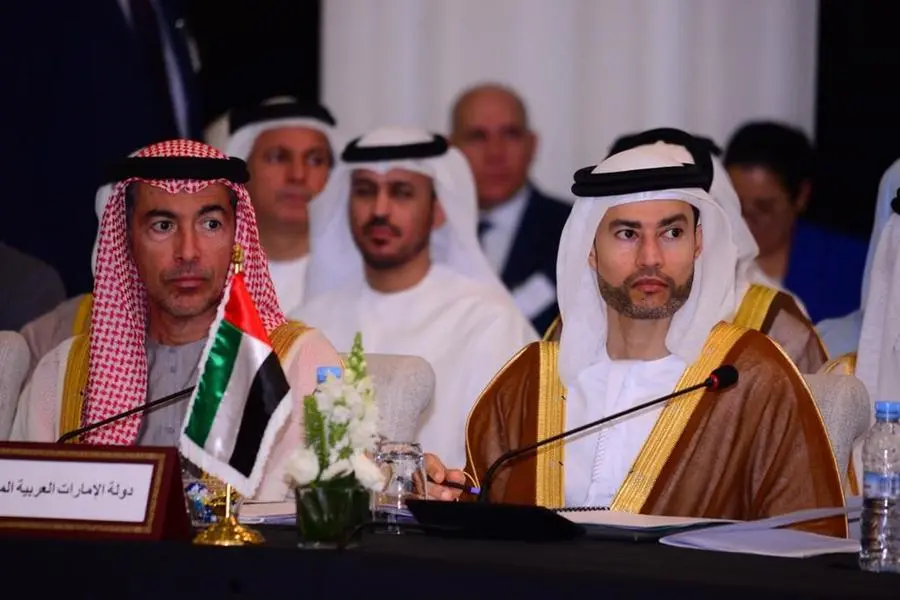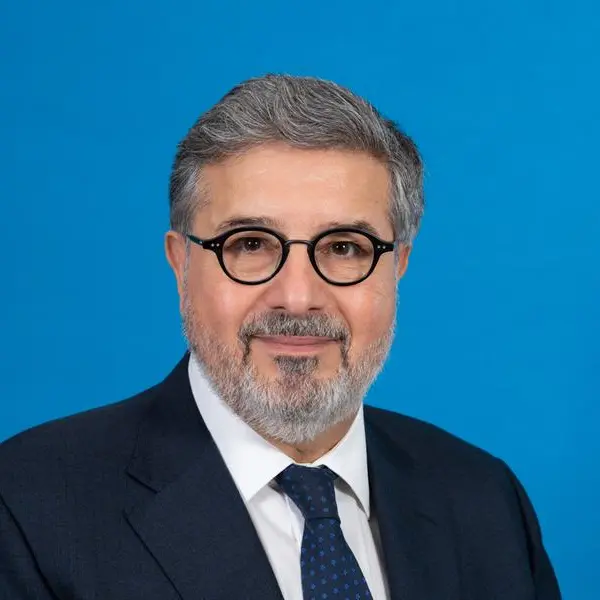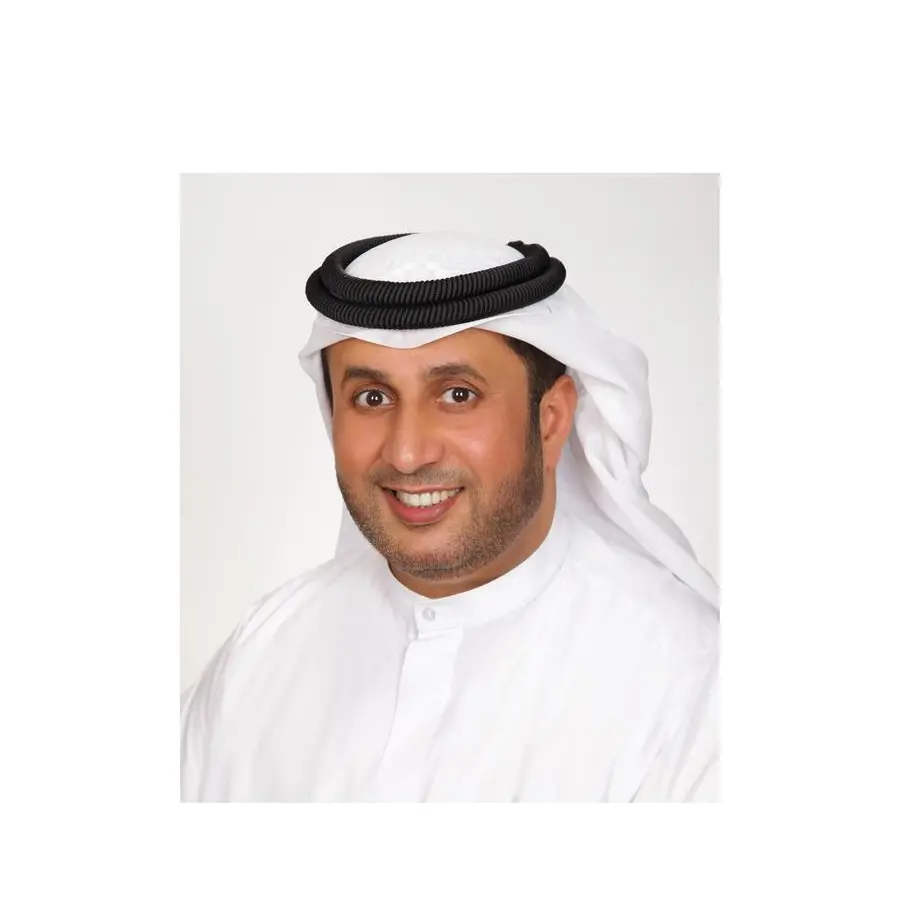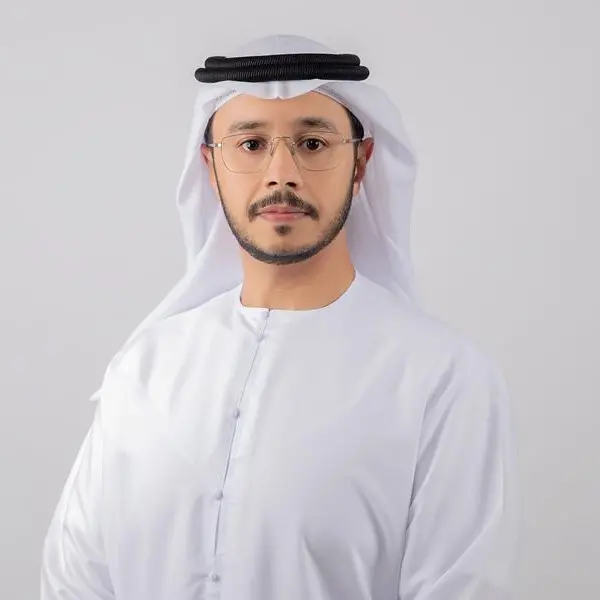PHOTO
- Mohamed Al Hussaini: Enhancing cooperation and integration among the joint Arab financial institutions is crucial to preserve Arab interests, particularly working to provide an appropriate environment to attract regional and foreign investments
- Mohamed Al Hussaini: Circular economy is a vital part of the UAE's efforts to remove carbon from various sectors, which contributes to accelerating efforts to achieve the objectives of the UAE Net Zero 2050
Subtitles:
- Nominating His Excellency Dr. Obaid Saif Hamad Al Zaabi to be the Chairman of the Board of Shareholders of the Arab Authority for Agricultural Investment and Development for the session (2023-2028)
Rabat - Kingdom of Morocco: His Excellency Mohamed Bin Hadi Al Hussaini, Minister of State for Financial Affairs, led the UAE delegation participating in the Joint Annual Meeting of Arab Financial Institutions held in Rabat, Morocco. The meetings reviewed ways to promote sustainable development in the region and the most prominent global issues, including the circular economy and sustainable finance.
The UAE delegation included His Excellency Khaled Mohammed Balama, Governor of the Central Bank of the UAE (CBUAE), His Excellency Younis Haji Al Khoori, Undersecretary of Ministry of Finance, and His Excellency Ibrahim Obaid Al Zaabi, CBUAE's Assistant Governor of the Monetary Policy and Stability Department, as well as a number of specialists from both parties. Arab Ministers of Finance and Economy, Arab Central Bank Governors, Heads of Arab financial institutions, and several representatives of regional and international organisations and specialists in the financial and economic fields also attended the meeting.
His Excellency Al Hussaini and his accompanying delegation participated in the annual meetings, which included the 52nd annual meeting of the Board of Governors of the Arab Fund for Economic and Social Development, the 46th annual meeting of the Arab Monetary Fund (AMF) Board of Governors, the 47th annual meeting of the Board of Governors of the Arab Bank for the Economic Development in Africa, the 50th meeting of the Shareholders’ Council of the Arab Investment and Export Credit Guarantee Corporation, the 47th annual meeting of the Board of Shareholders of the Arab Authority for Agricultural Investment and Development, and the 14th regular session of the Council of Arab Finance Ministers.
Economic and social development efforts in Arab countries
The 52nd annual meeting of the Board of Governors of the Arab Fund for Economic and Social Development discussed various topics, foremost of which was the approval of the draft agenda and the Board of Directors report on the activity and financial position of the Fund, and the approval of the financial statements for the year ended on December 31, 2022, as well as the election of the Chairman and Vice-Chairman of the Board of Governors for the 52nd annual session of the Board.
During the meeting, His Excellency Al Hussaini thanked His Majesty King Mohammed VI Ibn Al Hassan, as the meetings were held under his patronage. His Excellency also thanked the Moroccan government and people for their warm reception and hospitality, and praised the efforts and achievements made by the Arab Fund for Economic and Social Development for the economic and social development programmes in Arab countries. His Excellency said: "Given the unprecedented circumstances and challenges that have exacerbated the consequences of the pandemic and the repercussions of climate change that some Arab countries are suffering from, we must increase our efforts to transform these challenges into opportunities that advance the economic and social development process in Arab countries."
His Excellency added: "Enhancing cooperation and integration among the joint Arab financial institutions is crucial to preserve Arab interests, especially working to provide an appropriate environment to attract regional and foreign investments, as well as promoting trade exchange between our countries to achieve Arab economic integration in various fields."
Appointing the UAE candidate to head the Arab Authority for Agricultural Investment and Development
During the 47th meeting of the Board of Shareholders of the Arab Authority for Agricultural Investment and Development, the annual report of the Board was reviewed, and the Chairman of the Authority was appointed for the session (2023-2028). The United Arab Emirates nominated His Excellency Dr. Obaid Saif Hamad Al Zaabi, succeeding His Excellency Mohamed bin Obaid Al Mazrooei for this position.
During his intervention, His Excellency Al Hussaini extended his sincere thanks and appreciation to the participants for their support, praising their decision to approve the designation of the UAE candidate, His Excellency Dr. Obaid Saif Hamad Al Zaabi, to head the Arab Authority for Agricultural Investment and Development for the coming period (2023-2028). His Excellency said: "We trust that Dr. Obaid's experience in the field of development will enable him to continue on the authority’s development process towards achieving the goals entrusted to it."
His Excellency Al Hussaini also thanked His Excellency Mohamed Bin Obaid Al Mazrooei, the current Chairman of the Authority, for his efforts during the past 10 years as the Authority's financial position witnessed major improvement during his presidency . During his tenure, shareholders' rights were increased, assets were boosted, and the authority saw significant growth in the number of investment opportunities as well as the number of private sector investors who contributed to agricultural projects and financed small farmers’ projects. Additionally, since assuming his position as Chairman of the Authority, His Excellency Al Mazrooei has been keen to support initiatives aimed at ensuring Arab food security and increasing the participation of all government and private sectors in Arab agricultural development.
Circular economy and combatting climate change
During the 14th regular session of the Council of Arab Finance Ministers, the report of the Council’s secretariat, the International Monetary Fund’s paper on “Revenue Mobilization for a Resilient and Inclusive Recovery in the Middle East and Central Asia”, the World Bank Group’s paper on “Improving Performance and Governance of State-owned Enterprises” and the Arab Monetary Fund (AMF) studies on “The Role of Fiscal Policies in Supporting Climate Finance and Sovereign Green and Sustainable Financing Instruments” and “Assessing Debt Sustainability to Face Vulnerabilities” were all reviewed. Moreover, the Organisation for Economic Co-operation and Development paper on “Global Corporate Tax Reforms: Implementation Map and Implications for Arab Countries” was discussed.
During his intervention in the session, His Excellency Al Hussaini noted that circular economy is a vital part of the UAE's efforts to remove carbon from various sectors, which contributes to accelerating efforts to achieve the objectives of the UAE Net Zero 2050. His Excellency stated that in 2021, the Cabinet had adopted the UAE Circular Economy Policy 2021-2031, which is a comprehensive framework for determining the country’s approach to achieving sustainable governance and the ideal use of natural resources, by adopting sustainable consumption and production methods.
His Excellency mentioned that post the policy approval, The UAE Circular Economy Council was formed to oversee the implementation of the strategy, approve performance indicators related to the strategy’s adoption, harmonise federal and local strategies within the policy’s requirements, and suggest the general foundations of sectoral plans. The UAE ranked first in the Arab world and 12th globally in the first edition of The Circular Carbon Economy (CCE) Index (reducing carbon emissions) issued by the King Abdullah Petroleum Studies and Research Center (KAPSARC).
His Excellency said: “The Barakah Nuclear Energy Plant (Barakah NPP) and the Mohammed bin Rashid Al Maktoum Solar Park are two examples of the UAE’s commitment to supporting projects that promote the use of clean and sustainable energy and reducing its carbon footprint. These projects embody the country’s pioneering position in the renewable energy sector and culminate in its efforts to build a more sustainable future for tomorrow’s generations."
His Excellency added: “The UAE is working to accelerate the transition to a circular economy by adopting digital technologies and highlighting cutting-edge inventions of leading companies in the world. The country is keen on bolstering international cooperation in addressing climate change and reducing carbon emissions, benefiting from international experiences, and adopting best sustainable practices. "
The 46th annual meeting of the Arab Monetary Fund (AMF) Board of Governors discussed several topics, foremost of which is its annual report, final accounts and performance report for 2022, in addition to means of enhancing the sustainability of the regional institution and the settlement of Arab payments. Additionally, the Chairman and Vice-Chairman of the Board of Governors for the next session were elected.
The 47th annual meeting of the Board of Governors of the Arab Bank for the Economic Development in Africa reviewed the annual report of the Board of Directors on the bank’s work during the fiscal year 2022 and the auditors’ report for the fiscal year 2022. The meeting also sought to discuss the amendment of some provisions of the agreement on establishing the bank and the mid-term evaluation report of the eighth 5-year plan for the Bank’s resources and their uses (2020-2024). This is in addition to selecting the Chairman of the Board of Governors and the Vice-Chairman of the Board for the 48th annual meeting.
During the 50th meeting of the Shareholders’ Council of the Arab Investment and Export Credit Guarantee Corporation, it was agreed to nominate the State of Palestine as Chairman of the Council in its current 50th session and the State of Qatar as Vice-Chairman. Participants in the meeting reviewed the report of the Board of Directors, and the auditors’ report was approved with the ratification of the balance sheet and income and expenditure account. Additionally, participants discussed the implementation of the Board of Shareholders Resolution No. 2 of 2013 regarding increasing the capital of the corporation, where they stressed on the need to urge member states and organisations to fulfill their shares of the due installments in increasing the capital of the corporation.
-Ends-
For more information, please contact:
Mary Khamasmieh
Weber Shandwick
E: mkhamasmieh@webershandwick.com
Rawad Khattar
Weber Shandwick
E: RKhattar@webershandwick.com
Sara Abuhassira Amani El Achkar
Weber Shandwick Weber Shandwick
E: SAbuhassira@webershandwick.com E: AElAchkar@webershandwick.com


















